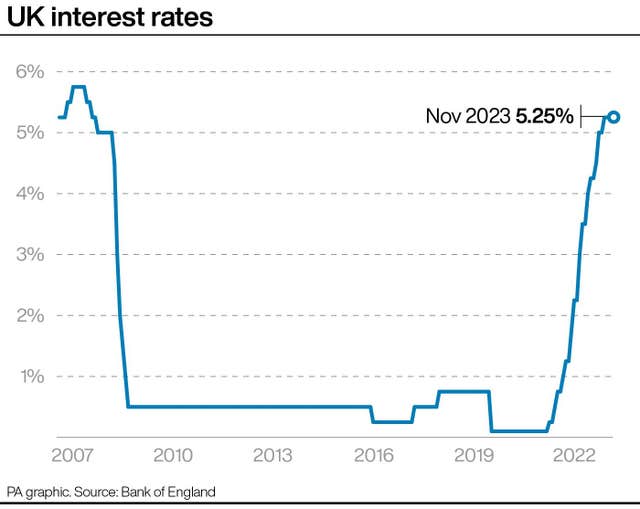Interest rates ‘almost certain’ to be held steady by Bank of England
Bank rate-setters previously held rates in the September and November meetings after witnessing a notable cooling in the rate of inflation.

Interest rates will “almost certainly” be held steady for a third time in a row by the Bank of England, economists have predicted.
The final Bank of England Monetary Policy Committee (MPC) meeting this year, on Thursday December 15, is expected to show a relatively stable end to a dramatic year for borrowing costs.
The central bank had hiked interest rates – which help dictate mortgage rates set by banks – in 14 consecutive meetings until they peaked at 5.25%.
However, the MPC held rates in the September and November meetings after witnessing a notable cooling in the rate of inflation.

“December’s MPC meeting will almost certainly prove the third in succession to deliver no change in interest rates,” he said.
“There’s been nothing in the way of significant economic surprises over the last four weeks and inflation and pay growth have slowed (the former by more than the Bank of England expected).”
The recent moves to hold the interest rate and signs of cooling inflation and subdued economic activity stoked expectations we could see rates reduced in the first half of next year.
However, the Bank’s governor, Andrew Bailey, and other member of the MPC, have indicated rates will remain where they are for some time.
He indicated that inflation in the services sector, where most Britons spend their money, is likely to remain at around 6% through the start of 2024.
James Smith, developed markets economist at ING, said he therefore expects the Bank to reiterate this message.
He said: “Markets are pricing three rate cuts in 2024 and we doubt the Bank will be too happy about that.
“Expect policymakers to reiterate that rates need to stay restrictive for some time.
“We only get a statement and minutes on Thursday, and no press conference or forecasts, so the opportunity to shift the messaging is fairly limited.”





